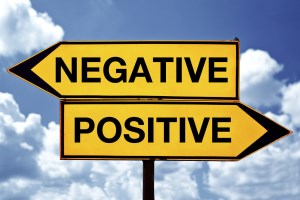There seems to be a great deal of confusion in the market about the benefits of Positive and Negative Gearing, and also a great deal of misinformation that tends to demonise either one as a bad investment. Firstly, let me just say that both of them can be very beneficial for you as a property investor, and the key thing to keep focus on is the actual property itself and how good it is an investment in its own right, prior to focusing solely on the pros and cons of Positive and negative gearing. The benefits of each may have more to do with your personal financial position and what is best for you than the actual property itself, as ultimately it all comes down to how much you borrow a lot of the time as to whether a good property is positively or negatively geared. It is even possible to have a negatively geared property providing positive cash flow due to the non cash effects of Depreciation!
So, What is Negative Gearing?
Negative Gearing is the tax benefit you can claim if your ownership costs on an investment property (including interest and depreciation) are higher than the actual income received from the property. If the costs are more than the income, which depends a lot of the time on the level of gearing you have on the property itself, then you can claim the loss against your income tax and get tax refund. Keep in mind that in some cases, the only reason a property is negatively geared is due to depreciation, and therefore once the tax refund is received, could in fact be cash flow positive. In a low interest rate environment, like we are currently in, this is more likely. There are other extreme cases of negative gearing whereby investors purchase property with such a high capital value and such a low rental yield that the property will always be negatively geared until the debt is substantially repaid. I would argue that these type if investments are not ideal as they are unlikely to recoup their negative gearing costs through capital growth, and are often acquired more as a status option than a true investment by the wealthy looking to reduce their taxable income.
Why would you consider Negative Gearing?
Many investors see the benefit of making minor losses in income if they believe that they will make significant capital gains in the longer term from the property. Losses will also reduce over time as rental income grows as well. They key is that the investors need to have adequate cash flow to fund the shortfall in income on the investment property while they wait for the property to appreciate in value. You also need to have a reasonable taxable income to take advantage of the negative gearing tax benefits as well. Obviously the higher your income / tax rate, the greater the tax benefits.
What is Positive Gearing?
Positive gearing is the opposite of negative gearing, where in fact the rental income from the property is more than adequate to repay all the costs of ownership on a property. This usually occurs where the level of debt is quite low on a property (ie you only borrow less than 70% of the property value), or you have acquired a high yield property. Ultimately this means that the property ownership costs are completely covered by the tenant. While this is a great position to be in, if you owe money on your own home which you are paying off in after tax dollars, and you are on a high tax threshold, this may not be ideal for your circumstances. However if you do not owe anything on your own home, then this is an ideal position to be in, and perhaps you could look at using the surplus cash flow and equity in your investment property to acquire an additional property?
So which one is best?
Whichever one is best for your personal situation. A positively geared property based on a high rental yield may be in a location that does not offer the same potential capital growth, ir may be subject to volatile market forces, and as stated above, a negatively geared property may have the capacity to be cash flow positive as well after your tax refund. The key is always purchase property that suits your investment criteria and risk level, as ultimately buying and selling property is expensive, and you need to ensure that whatever you purchase suits your investment strategy for some time. Only buy good quality investments with a rteasonable return on investment and strong potential for rental growth. Ultimately though, your personal circumstances are the true determining factor as to what is best for you. If you own your own home outright for instance, and have plenty of available cashflow and strong income potential, then a negatively geared property is ideal for you, providing that the property constitutes a good investment in itself (ie good location in a growth area, close to amenities, strong rental demand, well built and modern, and good potential for capital growth). Don’t buy an investment property for your ego, buy it for your long term well being.
